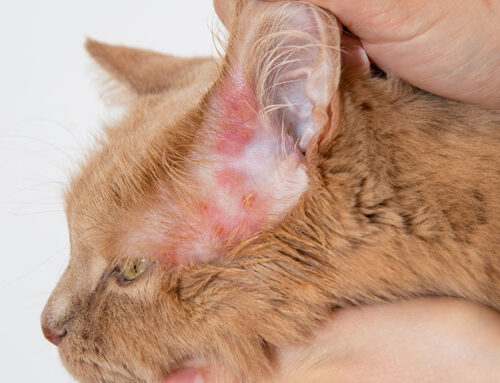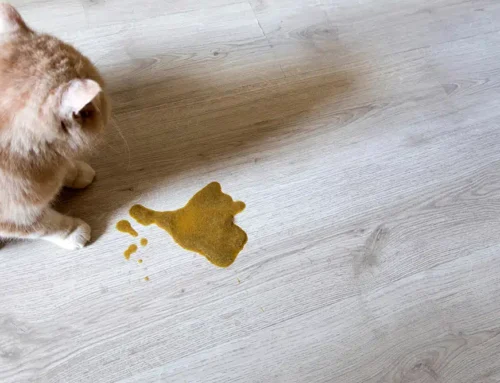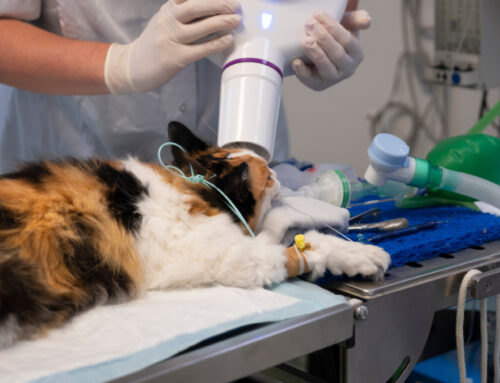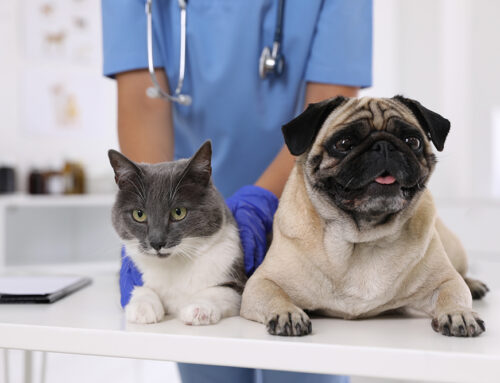While countless advances in veterinary medicine and technology are made every year, nothing yet can prevent aging—in humans and pets. As hard as that may be to accept, the good news is that you can add years to your pet’s life by taking proactive measures to ensure their good health. Remember, you are your pet’s advocate—they cannot speak for themselves, and they need your help to detect current and future illness signs, to prevent diseases, or at a minimum, to detect illness early so treatment can begin early.
At Star of Texas Veterinary Hospital, we want to provide heartfelt guidance, care, and treatment throughout your pet’s life, so they can confidently face all that comes with aging.
In-clinic pet preventive care
Wellness exams may seem unnecessary in seemingly healthy pets, but they are vital for your pet’s longevity. We consider the following three services essential:
- Regular wellness exams — Wellness exams are designed to evaluate healthy pets who are behaving normally. When our veterinarian sees your pet on a yearly basis—twice-yearly for puppies and seniors—they can track personalized normal and abnormal findings. Wellness examinations are all about timing, and seeing patients often enough to practice preventive medicine. Preventive medicine is exactly what it says— keeping vaccinations up-to-date to prevent diseases such as rabies, distemper, parvovirus, parainfluenza, and bordetella, and providing parasite preventives to protect against diseases transmitted by fleas, ticks, and mosquitoes. Wellness exams also will include diagnostic screenings, such as a blood work panel, to catch chronic diseases (e.g., kidney failure and anemia) early.
- Spay or neuter procedures — When you choose not to spay or neuter your pet, you put them at serious risk for several cancers (i.e., mammary and testicular), as well as other serious issues (e.g., pyometra in female dogs), and general behavioral issues. Ask our veterinarian the best time to spay or neuter your pet according to age and breed.
- Veterinary dental cleanings — Periodontal disease in pets causes pain, infection, and rotting teeth, and affects 70% of dogs and cats 3 years and older who go without regular dental cleanings. Untreated pets are at risk for organ failure, because oral bacteria travel through the pet’s bloodstream and can damage the kidney, heart, and liver. Professional cleanings under general anesthesia are the only way to thoroughly clean your pet’s teeth, and prevent all the possible problems.
At-home preventive pet care
While much preventive care must be performed in the veterinary hospital, you can regularly do the following at home, to help maintain your pet’s good health:

- At-home dental care – Daily toothbrushing with a finger brush or child-size toothbrush is necessary, along with professional cleanings, to reduce the risk of periodontal disease. If your pet will not accept your toothbrushing, various dental chews and water additives can help control plaque and tartar between veterinary cleanings.
- Year-round parasite prevention — Various parasites transmit deadly diseases that begin with bite wounds, including:
-
- Fleas — Flea allergic dermatitis, anemia
- Ticks — Lyme disease, Rocky Mountain spotted fever, and canine ehrlichiosis
- Mosquitoes — Heartworm disease
Your veterinarian will establish a parasite prevention protocol to match your pet’s lifestyle and susceptibilities, and recommend the best preventive that aligns with your pet’s needs. But, it’s up to you to ensure your pet gets the correct dose at the required frequency, and especially that they never miss a dose.
- Diet — Risk for chronic illnesses like arthritis and life-threatening diseases like cancer can be seriously reduced if your pet is a healthy weight. Obesity also is a catalyst for fear, anxiety, and stress in your pet. Many pet owners struggle with refusing their pet treats and table scraps, and are also unsure about what is considered a healthy weight for their pet. This Pet Weight Check from the Association for Pet Obesity Prevention can help.
- Exercise — If your pet does not exercise according to their breed-specific needs, their weight, joints, immune system, and cognitive abilities are all impacted. Ask your veterinarian the best exercise activities for your pet based on their age, breed, and stamina.
- Socializing and training — Your pet needs relational attention and interaction to experience a healthy, happy life. Your veterinarian can point you in the direction of puppy and positive-reinforcement training classes. Socialization also comes from playdates, and safe engagement while you are out walking or playing in the local dog park. These outlets significantly contribute to your pet’s emotional and behavioral health. Never allow your pet to roam free without supervision, as that places your pet at risk for sickness, or injury.
Our Star of Texas Veterinary Hospital team is confident that your pet can experience a full and meaningful life with preventive care as their foundation. Let us, with your permission, help your senior pet to unleash their younger self. Give us a call if you have any questions or concerns about adding years to your pet’s life, or to schedule their wellness exam or dental cleaning.







